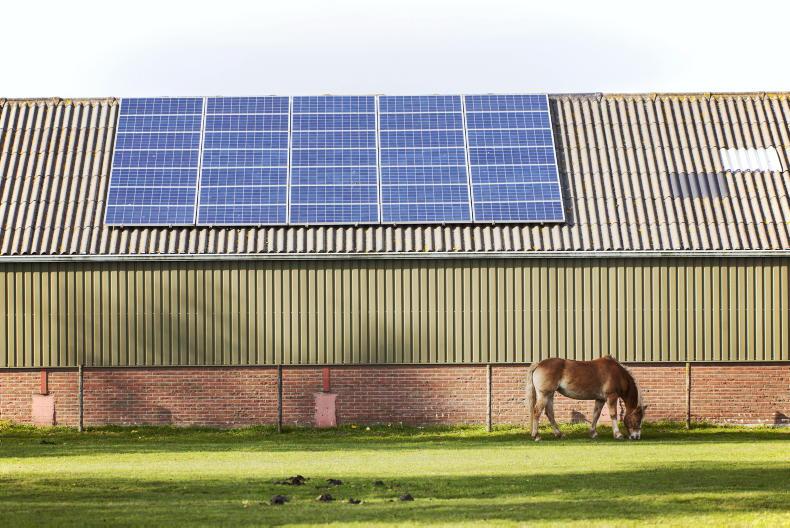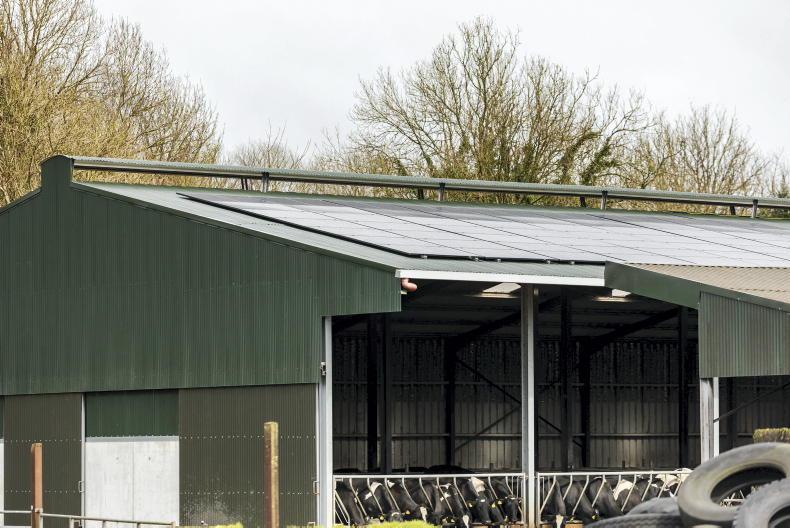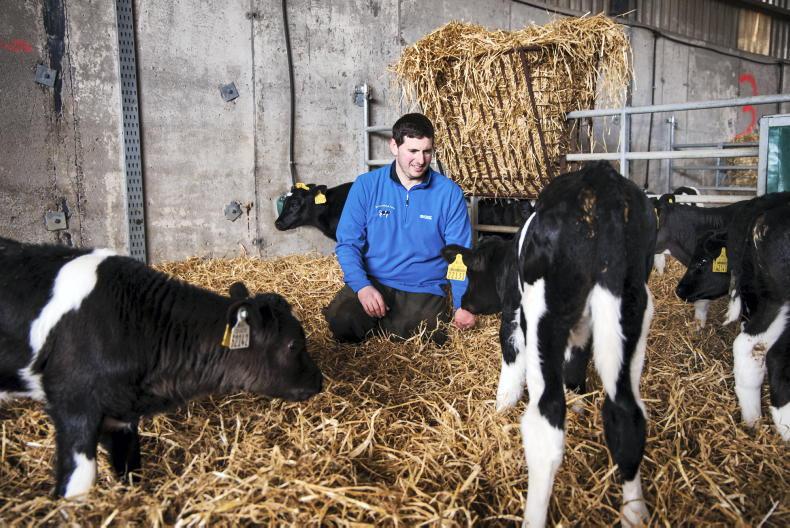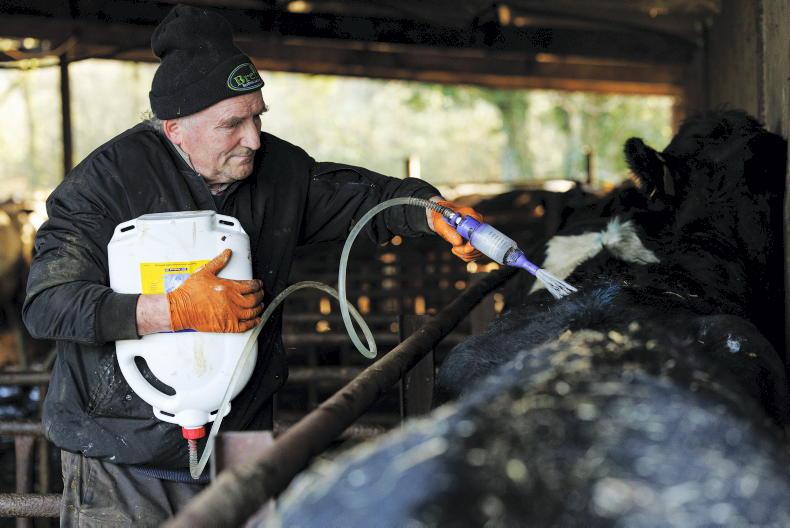Warm temperatures and relatively benign weather with little wind or rain have ushered in winter 2024. However, farmers should not get sucked into a false sense of security regarding the weather.
Just a few weeks ago in mid-October Storm Ashley caused significant damage and power outages across Ireland. The point here is we don’t know when the next storm or severe weather event is going to come, so farmers need to be prepared.
Frost
The main issue in a severe frost is frozen water pipes and frozen pumps and other devices in milking parlours. Modern machines are good at self-draining, but problems can still occur.
Keep all doors to milking parlours closed. Some farmers stack straw bales in front of openings to try and insulate the interior of buildings from frost. Others have installed roller doors at openings to keep frost and snow out during bad weather.
To prevent the milking machine from freezing, giving a final rinse of salt and water seems to work well for some. The rate is 2.5% salt, so 0.5kg in 20l of water.
Put the salt water through after the final rinse. Suck enough water to line the internal surfaces and then drain the plant fully. Make sure pumps are drained at the base or well insulated to prevent impellers from getting damaged.
Leave clusters hanging down and drain them well to make sure no water can freeze in the bends.
In some modern plants with more sophisticated equipment, especially milk meters, it can be hard to drain all instrumentation fully.
As a result, some farmers that are in exposed sites or particularly prone to frosts will invest in space heaters that can be left on all night to heat the milking parlour and dairy in order to prevent frosts. Other farmers use red lamps, like the ones used for sick calves to keep equipment warm and prevent freezing.
When it comes to wash-down pumps and power washers, these should be fully drained after each use during frosty weather to prevent freezing.
The issue here is not so much that they won’t work when frozen, but that the frozen water will cause damage. Many farmers have experienced these issues in the past as when water freezes it expands and will crack steel, break pumps and burst through valves.
Snow
The last big snow event in Ireland occurred in 2018 when the Beast from the East event happened in March. This event is still fresh in the memory of many farmers.
That was a very unusual weather event in Ireland but as climate change-related weather events worsen, farmers need to be prepared for everything.
The key thing is to provide as much shelter for stock as possible and try and prevent snow from entering buildings. This includes closing all doors and perhaps even blocking up openings with machinery or bales.
The worst part of the snow is usually drifts, so protecting yards and entrances from drifts is a good way to protect the farmyard from the worst effects of heavy snow. This could be achieved by strategically placing bales or machinery across exposed areas.
The key thing is to keep a path open for machinery to travel between silage pits and sheds so animals can be fed.
Losing power is a common occurrence on many farms. While many milking machines, particularly older models will have a PTO power option, this will only run the machine, not anything else.
Most new machines all need generators to run them in the event of loss of mains power.
As a result, many farmers have invested in generators, whether they are PTO-powered or stand-by diesel engine generators.
All generators should be tested regularly to ensure that they are working correctly.
It sometimes happens that generator parts get damaged from lack of use, so test the generator out to make sure that it is operating correctly. If there are any issues, get them fixed by an electrician or service technician well in advance of needing them.
Storing water
If electricity is lost to the pump house and there is no back up generator or water in storage tanks then the farm will be left without running water. The same applies to public or group water schemes as if the power goes to the pumping station there will be no water.
Farmers should consider storing clean water for washing the milking machine and for feeding livestock during a power outage.
In short
Winter weather is unpredictable and farmers should be making preparations now for storms and severe weather events. To prevent the milking machine from freezing, giving a final rinse of salt and water seems to work well.All generators should be tested regularly to ensure that they are working correctly. Farmers should consider storing clean water for washing the milking machine and for feeding livestock during a power outage.
Warm temperatures and relatively benign weather with little wind or rain have ushered in winter 2024. However, farmers should not get sucked into a false sense of security regarding the weather.
Just a few weeks ago in mid-October Storm Ashley caused significant damage and power outages across Ireland. The point here is we don’t know when the next storm or severe weather event is going to come, so farmers need to be prepared.
Frost
The main issue in a severe frost is frozen water pipes and frozen pumps and other devices in milking parlours. Modern machines are good at self-draining, but problems can still occur.
Keep all doors to milking parlours closed. Some farmers stack straw bales in front of openings to try and insulate the interior of buildings from frost. Others have installed roller doors at openings to keep frost and snow out during bad weather.
To prevent the milking machine from freezing, giving a final rinse of salt and water seems to work well for some. The rate is 2.5% salt, so 0.5kg in 20l of water.
Put the salt water through after the final rinse. Suck enough water to line the internal surfaces and then drain the plant fully. Make sure pumps are drained at the base or well insulated to prevent impellers from getting damaged.
Leave clusters hanging down and drain them well to make sure no water can freeze in the bends.
In some modern plants with more sophisticated equipment, especially milk meters, it can be hard to drain all instrumentation fully.
As a result, some farmers that are in exposed sites or particularly prone to frosts will invest in space heaters that can be left on all night to heat the milking parlour and dairy in order to prevent frosts. Other farmers use red lamps, like the ones used for sick calves to keep equipment warm and prevent freezing.
When it comes to wash-down pumps and power washers, these should be fully drained after each use during frosty weather to prevent freezing.
The issue here is not so much that they won’t work when frozen, but that the frozen water will cause damage. Many farmers have experienced these issues in the past as when water freezes it expands and will crack steel, break pumps and burst through valves.
Snow
The last big snow event in Ireland occurred in 2018 when the Beast from the East event happened in March. This event is still fresh in the memory of many farmers.
That was a very unusual weather event in Ireland but as climate change-related weather events worsen, farmers need to be prepared for everything.
The key thing is to provide as much shelter for stock as possible and try and prevent snow from entering buildings. This includes closing all doors and perhaps even blocking up openings with machinery or bales.
The worst part of the snow is usually drifts, so protecting yards and entrances from drifts is a good way to protect the farmyard from the worst effects of heavy snow. This could be achieved by strategically placing bales or machinery across exposed areas.
The key thing is to keep a path open for machinery to travel between silage pits and sheds so animals can be fed.
Losing power is a common occurrence on many farms. While many milking machines, particularly older models will have a PTO power option, this will only run the machine, not anything else.
Most new machines all need generators to run them in the event of loss of mains power.
As a result, many farmers have invested in generators, whether they are PTO-powered or stand-by diesel engine generators.
All generators should be tested regularly to ensure that they are working correctly.
It sometimes happens that generator parts get damaged from lack of use, so test the generator out to make sure that it is operating correctly. If there are any issues, get them fixed by an electrician or service technician well in advance of needing them.
Storing water
If electricity is lost to the pump house and there is no back up generator or water in storage tanks then the farm will be left without running water. The same applies to public or group water schemes as if the power goes to the pumping station there will be no water.
Farmers should consider storing clean water for washing the milking machine and for feeding livestock during a power outage.
In short
Winter weather is unpredictable and farmers should be making preparations now for storms and severe weather events. To prevent the milking machine from freezing, giving a final rinse of salt and water seems to work well.All generators should be tested regularly to ensure that they are working correctly. Farmers should consider storing clean water for washing the milking machine and for feeding livestock during a power outage. 











SHARING OPTIONS